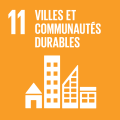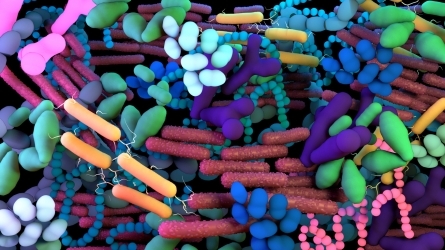
Euskal nortasuna(k) XXi mendera begira: 2050 helburu
Description
L’identité se construit et se renouvelle chaque jour, se transmet de génération en génération et est influencée par les communautés, les traditions philosophiques et les cultures environnantes. En Euskal Herria nous vivons des identités radicalement différentes et, dans une large mesure, opposées. Il existe également des différences significatives entre les territoires d’Euskal Herria, et si la majorité de la population s’identifie à l’identité basque, tous n’ont pas la même identité ni le même rapport avec la culture basque.
Dans un Pays basque de plus en plus diversifié, l’identité basque est confrontée à de nouveaux défis. Aux défis universels (mondialisation, révolution technologique, numérisation, changement climatique et réduction de la biosuffisance, migration et gestion de la diversité, nouveaux pouvoirs opérationnels géopolitiques, tendance globale à l’affaiblissement de la démocratie et à l’épuisement partiel du modèle européen de bien-être, etc.) il faut ajouter les défis qui se posent dans la société basque (la baisse de la natalité et l’allongement de la vie, le renforcement de l’euskera et de la culture basque; la cohésion des territoires basques et la construction d’une mémoire historique partagée; faire face au risque que l’Euskal Herria reste à la périphérie du monde, assainir notre tissu productif et social ou maintenir notre qualité de vie)
Eusko Ikaskuntza, préoccupé par la survie de l’identité basque, a réalisé l’étude L’identité basque (s) au XXIe siècle : 2050. L’étude a été achevée en juillet 2024 et le Congrès d’études basques, qui s’est tenu du 2 au 4 octobre 2024, a été présenté et examiné pour la première fois. En nous concentrant sur l’avenir de l’identité, nous avons voulu connaître les façons de comprendre, définir et vivre l’identité basque dans la société actuelle. En analysant le changement d’identité basque, nous avons également identifié les acteurs actuels qui stimulent, créent ou renforcent l’identité basque actuelle.
Ces discours recueillis tout au long de la recherche nous ont permis d’identifier les éléments et caractéristiques que la société actuelle valorise dans l’identité basque, ainsi que les désirs. Dans le regard vers l’avenir de l’identité basque émergent des valeurs importantes : diversité, égalité, coexistence, solidarité, cohésion sociale, sens de la communauté,... Il est question de s’appuyer sur ces valeurs et de les approfondir en mettant l’accent sur les relations sociales.
Objectives
Mugaz Gaindiko ikastaroak eskaintzen duen aukeraz baliatuz, Euskal nortasuna(k) XXI. mendera begira: 2050 helburu ikerketaren ondorioak gizarteratzeaz gain, eztabaida gaian sakondu eta hausnarketa sustatu nahi dugu ikastaro honen bitartez. Ikerketa 2024ko uztailean bukatu zen eta 2024ko urriaren 2tik 4ra ospatu den Eusko Ikaskuntzaren Kongresua, lehen aldiz, ikerketaren ondorioak aurkeztu eta kontrastatu genituen.
Ikerketak, euskal nortasunaren etorkizunaz arreta jarriz, egungo gizarteak euskal nortasuna ulertzeko, definitzeko eta bizitzeko moduak ezagutu nahi izan ditugu. Halaber, euskal nortasunaren aldaketa aztertuz, egungo euskal nortasuna bultzatzen, sortzen edo indartzen duten egungo eragileak identifikatu ditugu.
Euskal kultura eta hizkuntza komun bat, euskara, hurbiltzeko eta partekatzeko planteamendutik abiatuta, proiektuak honako hauek azpimarratzen ditu: elkar ezagutzeko beharra; hiru lurraldeetako herritarren artean interesa sortzea; eta lurralde kohesionatuagoa eta konektatuagoa eraikitzen laguntzea. Hau da, komunitatearen zentzua indartzea, eta, horri lotuta, balio soziokomunitarioak lantzea.
Activity directed to
- All public
- University student
- Students not from university
- Teachers
- Professionals
Directors

Josune Etxaniz Barrio
Eusko ikaskuntza
Eusko Ikaskuntzako 'Euskal nortasuna(k) XXI. mendera begira: 2050 helburu' proiektu arduraduna
Speakers
Itxaro Borda
Baionan sortua, 1959an. Historian lizentziatua, postaria izan da lanbidez erretiratu den arte duela bi urte. Gazterik hasi zen idazten, Maiatz aldizkariaren sorreran parte hartu zuen eta 2002an Euskadi literatura saria eskuratu zuen 100 % Basque nobelari esker. Amaia Ezpeldoi detektibe lesbianaren pertsonaia orraztu zuen. 2022an, Uhartearen mugetan Maiatz argitaletxean eta 2024an Susa-n Itzalen tektonika poema bildumak plazaratu ditu. Hainbat euskal kantarirentzat letrak idatzi ditu eta idazkuntzaren inguruko proiektu kolektibo askotan parte hartu du. 2025eko Gutun Zuria literatura festibalaren eta BBKren ohorezko Makila ukan berri du.
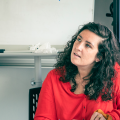
Elena Casiriain Iturriria
Doctoral student in anthropology at the University of Toulouse Jean Jaurès in the LISST-CAS laboratory and at Euskal Herriko Unibertsitatea (Donostia) in the GAIT research group. Cifre contract with the Basque Country Development Council (CDPB). Research projects : - Mugalur project (CDPB / Cederna-Garalur / EHU / NAEN Euroregion) > coordination and researcher - Researcher of the project ‘Basque identities in the 21st century: objective 2050’ project of Eusko Ikaskuntza - Researcher of the project "Mugi Muga: Weaving Networks Among Basque Youth" (Ideiak 2024 / Provincial Council of Gipuzkoa).

Olatz Elexpuru Dominguez
4th year student of the Double Degree in Political Science and Public Management + Sociology,

Jone Goirigolzarri Garaizar
Deustuko Unibertsitatea
Deustuko Unibertsitateko Gizarte eta Giza Zientzien Fakultateko irakaslea da eta unibertsitate bereko Gizarte Balioen ikertaldeko kidea. Soziologia eta Gizarte Antropologian lizentziatua da eta Gizarte Zientzietan doktorea. Bere ikerketa lerroa hizkuntza gutxituen biziberritzean xedarritu du eta hiztun berriak, hizkuntza jarrerak eta hizkuntza politikak izan ditu aztergai nagusi. Azken urteetan euskal hiztun berri gazteen kontzientzia soziolinguistiko kritikoa eta mudantza prozesuak ikertzen aritu da.

Paxkal Indo
Chairman of the Development Council since 2018. Vice-President of the Development Council (2013-2018). Member of the Development Council since 2008. Chairman of the Baigorri Organ Association (since 2013) Chairman of Seaska (2008-2019) President of the Eskolim Association (2010-2019) On the other hand, cultural production expert, author, artist, musician, technician, cultural education, breeder, pyrotechnics expert.
Professor of Sociology at the Universidad Pública de Navarra (UNP). Visiting Professor at the Ludwig Maximilians Universität (Munich), Westfälische Wilhelms Universität (Münster), Fondation Maison des Sciences de l'homme (Paris), École Pratique des Hautes Études (Paris), Università Gabriele d'Annunzio (Chieti-Pescara). Member of the I-COMMUNITAS (UNP) Institute for Advanced Social Research. Her research addresses issues related to liberal democracy in contexts of diversity (mainly culture, religion and gender); as well as the ideology and discourses of the radical right-wing populists against pluralism. Recent publications: National Populism and Religion: The Case of Fratelli d'Italia and Vox (2025); Gender in VOX’s Ideology: Legitimation Strategy or Central Category? (2024) ; En defensa de la República. El lugar de la derecha radical en el debate francés sobre la laicidad (2023); La protección de lo sagrado en Francia: de las caricaturas a la ley para reforzar el respeto a los valores de la República (2022). Director of the I Strategic Plan for Coexistence in the Autonomous Community of Navarre on behalf of the General Directorate for Peace, Coexistence and Human Rights of the Government of Navarre (2020-2021).

Francis Jaureguiberry
Francis Jauréguiberry is a sociologist, professor emeritus at the University of Pau and has long been head of the SET (Société Moyenne Territoriale) laboratory at the CNRS. His research concerns the new forms of identity and sociability generated by the expansion of information and communication technologies. He has written several books and articles on the uses of ICT, but also on the sociology of identity and hypermodernity. Co-founder and head of the Research Committee "Sociology of Communication" at the International Association of Sociologists of the French Language. https://www.francisjaureguiberry.org

Patxi Juaristi Larrinaga (patxi.juaristi@ehu.eus) is a Ph.D. graduate professor in the Department of Political Science and Administration at the UPV/EHU. In the course 1998/99, he was a visiting professor at the University of Idaho (USA). From 2005 to 2009, he was Director of Universities of the Basque Government. From 2011 to 2012, he was the coordinator of the Master of Government and Political Research and, since 2016, is the coordinator of a postgraduate degree on Linguistic Planning organized by the university and Asmoz. From 2009 to 2017 he was a member of the board of UPV/EHU`s Ethics Committee of issues related to research with humans. He has also been a member of the Master's and Doctor's Board of quality (2016-2017). He has published several articles and 13 books on Basque culture, Basque values, and Basque language. He has also researched and published books and articles related to the Civil War and historical memory. He has been the director or co-director of seven PhD thesis. Is member of the Royal Academy of the Basque Language (Euskaltzaindia). Between 2017 and 2020 he has been the vice-chancellor of the Biscay Campus at the UPV/EHU.

J. Inazio Marko Juanikorena
Euskal Herriko Unibertsitatea
Licenciado y Doctor en la Sección de Filosofía y Pedagogía de las Ciencias de la Educación. Obtuvo el Premio Especial de Doctorado de la UPV/EHU y el Premio Mitxelena de Tesis en Euskera. Ha sido Decano de la Facultad de Educación, Filosofía y Antropología de la UPV/EHU de 2017 a 2021, y anteriormente Vicedecano de Mejora e Innovación (2008/2017) y Coordinador del Grado en Pedagogía (2013/2016). Profesor agregado de la UPV/EHU en el departamento de Ciencias de la Educación de la Facultad de HEFA, desarrolla asignaturas como "Evaluación de Programas y Servicios Socioeducativos" o "Fundamentos de la Investigación Educativa". Especializado en el campo de la pedagogía lingüística y social, temas de intervención, gestión de procesos de cambio, planificación y evaluación de programas y gestión de equipos. Ha realizado estudios y publicado trabajos sobre procesos de innovación y cambio lingüístico en la sociedad y en las organizaciones.
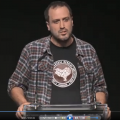
Iñaki Zaldua Calleja
EHU
Working on my PhD thesis under a contract with the Basque Government. Among other topics, I am analysing the structuring of nationalist identities in the peripheral areas of the Basque Country. We have also begun to study artificial intelligence and its impact on the structuring of identities. Researcher of the project "Mugi Muga: Weaving Networks Among Basque Youth" (Ideiak 2024 / Provincial Council of Gipuzkoa)
Registration fees
| Face-to-face | Until 02-07-2025 |
|---|---|
| 0 EUR |
Venue
Aquitaine
Aquitaine
Sustainable development goals
Agenda 2030 is the new international development agenda approved in September 2015 by the United Nations. This agenda aims to be an instrument to favour sustainable human development all over the planet, and its main pillars are the eradication of poverty, a reduction in equality and vulnerability and fostering sustainability. It is a unique opportunity to transform the world up to 2030 and guarantee human rights for all.

10 - Reduced inequalities
Reduce inequality in countries and between them. Key issues: promotion of the social, economic and political inclusion of all people, equal opportunities, fiscal, wage and social protection policies to favour equality, migration and the policies that affect it, official assistance for the development, regulation and supervision of world institutions and markets.
More information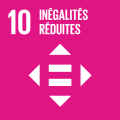
11 - Sustainable cities and communities
Make cities and other human settlements inclusive, safe, resilient and sustainable. Key issues: access to suitable housing and basic services that are secure and affordable, suitable and sustainable transport systems, inclusive urban planning, participative planning and management, protection of cultural and natural heritage, air-quality, green zones, and connections between urban, peri-urban and rural areas.
More information